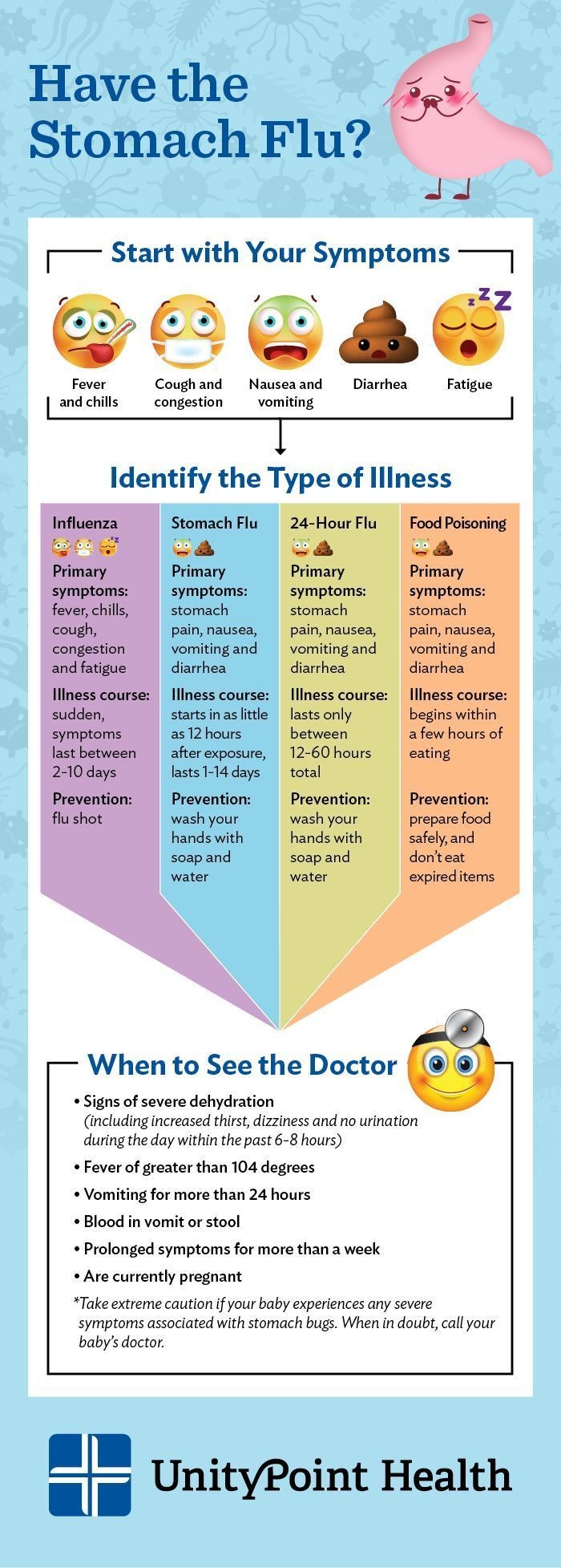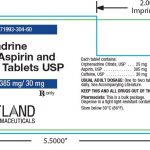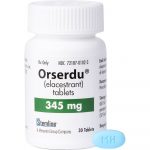
Contents
- 1 Stomach Flu vs. Food Poisoning
- 1.0.1 Causes of stomach flu vs. food poisoning
- 1.0.2 Symptoms of stomach flu vs. food poisoning and their onset
- 1.0.3 Recovery duration for stomach flu vs. food poisoning
- 1.0.4 Diagnosing stomach flu vs. food poisoning
- 1.0.5 Relieving symptoms of these infections
- 1.0.6 Prognosis for these infections
- 1.0.7 Preventing the stomach flu and food poisoning
- 1.0.8 From
Stomach Flu vs. Food Poisoning
Some forms of poisoning are spread through contact with infected bodily fluid, particularly stool. This is known as the "fecal-oral" route, where contaminated feces on hands are transferred to the mouth.
Causes of stomach flu vs. food poisoning
Common causes of food poisoning include E. coli found in ground beef, egg, raw meat, and fresh produce.
How do you get the stomach flu?
- Viral gastroenteritis is usually caused by a virus.
- Rotavirus, noroviruses, adenoviruses, and astrovirus are common viruses that can cause stomach flu.
How do you get food poisoning?
- There are over 200 different causes of food poisoning.
- Contamination can occur at various stages of food preparation and handling.
- Food handlers not properly cleaning their hands can cause infection spread.
- Bacteria such as Escherichia coli, Staphylococcus, Campylobacter, Vibrio cholerae, Salmonella, Listeria, botulism, and Shigella can contaminate food.
- Undercooked or raw meats, as well as certain foods like raw eggs, unpasteurized cheeses, raw fish or shellfish, raw sprouts, and unpasteurized beverages, can cause food poisoning.
Symptoms of stomach flu vs. food poisoning and their onset
Symptoms of the stomach flu and their onset
Symptoms of viral gastroenteritis can appear 4 to 48 hours after exposure to the virus.
The most common symptoms include nausea, vomiting, diarrhea, and abdominal pain.
If the condition persists, dehydration can occur, resulting in symptoms such as dizziness, decreased urine output, dry mouth, dark urine, excessive thirst, and low blood pressure. Infants may show signs of dehydration such as dry diapers, sunken eyes, decreased tears when crying.
Symptoms of food poisoning and their onset
Symptoms of food poisoning are similar to the stomach flu but are often more severe. They typically begin within 1 to 12 hours after consuming contaminated food or drink.
- Nausea
- Vomiting
- Watery diarrhea
- Muscle aches and pains
- Fever
- Chills
- Stomach pain and cramping
- Fatigue
- General feeling of unwellness
If symptoms persist or include vomiting blood or blood in the stool, immediate medical attention is necessary.
Recovery duration for stomach flu vs. food poisoning
- The duration of the stomach flu varies, with recovery typically occurring within a few days but sometimes lasting up to 10 days.
- Foods poisoning symptoms usually subside within several hours to a few days, with the duration being shorter than that of the stomach flu.
Diagnosing stomach flu vs. food poisoning
Diagnosing the stomach flu
- The stomach flu is usually diagnosed based on the patient’s signs and symptoms, such as stomach pain, diarrhea, and fever, rather than specific tests.
- Stool samples may be tested if there is blood present, but immediate medical attention is necessary for severe symptoms or blood in the stool.
Diagnosing food poisoning
- Food poisoning is typically diagnosed based on the patient’s signs and symptoms, and specific tests are usually not ordered.
- Stool cultures can help identify the type of bacteria, virus, fungi, or prion responsible for the poisoning.
Relieving symptoms of these infections
Relieving symptoms of the stomach flu
- Ensure adequate fluid and electrolyte intake to replace what is lost through vomiting and diarrhea.
- Drink sports drinks if you are an adult, but use special fluid and electrolyte solutions or ice pops for children suffering from dehydration.
- Avoid large amounts of fluids and opt for small amounts at a time.
- Gradually reintroduce bland and non-irritating foods such as cereals, bread, potatoes, lean meats, plain yogurt, fresh apples, and bananas.
Relieving symptoms of food poisoning
- Stay well hydrated by drinking plenty of fluids.
- Give the stomach time to settle before eating or drinking, unless severe vomiting or diarrhea is present. Consider sucking on ice chips or taking small sips of water to rehydrate.
- After symptoms improve, start with bland and easily digestible foods, such as toast, soda crackers, gelatin, rice, and bananas. Avoid high-fat or spicy foods.
By clicking Submit, I agree to the MedicineNet’s Terms & Conditions & Privacy Policy and understand that I may opt out of MedicineNet’s subscriptions at any time.
Prognosis for these infections
- The prognosis for the stomach flu is generally good, with most people recovering without complications or specific medical treatment.
- Food poisoning also has a good prognosis, with most people recovering within 1-2 days. However, severe cases may require medical treatment.
Preventing the stomach flu and food poisoning
Preventing the stomach flu
- Avoid contact with anyone who is sick with the stomach flu.
- Wash hands frequently if you have been near a sick person.
- A rotavirus vaccine is available to prevent one common cause of the stomach flu.
Preventing food poisoning
- Practice proper food storage and preparation.
- Cook seafood and meats thoroughly to recommended temperatures.
- Refrigerate perishable foods.
- Avoid consuming spoiled food.
From
Digestive Disorders Resources
- 7 Best Vitamins for Crohn’s Disease
- Side Effects From aHUS Treatment


